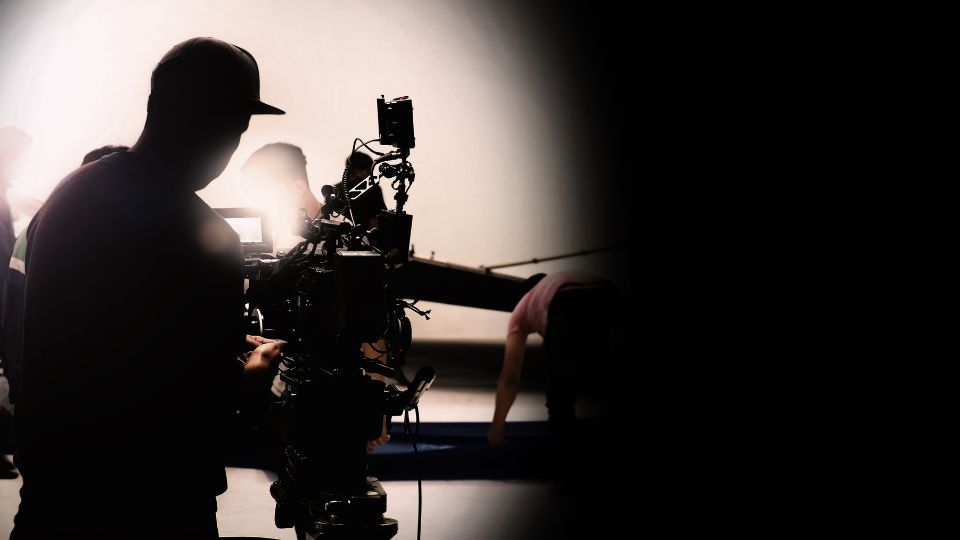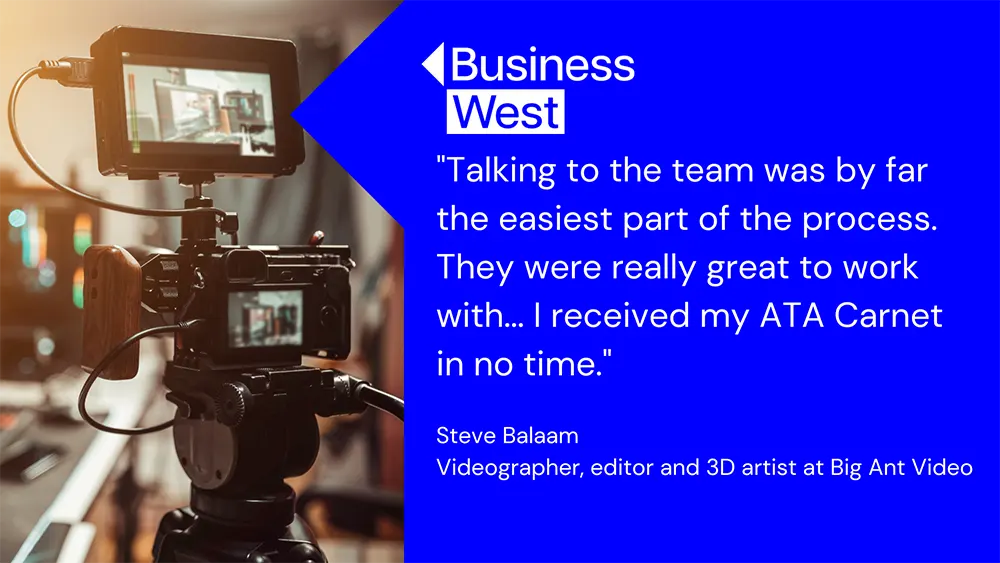
An ATA Carnet acts as a 'passport for goods’, allowing for duty and tax-free temporary movement of goods between certain countries. The ATA Carnet scheme is now operating in over 80 countries worldwide, and has been particularly important in allowing UK-based companies to temporarily import their goods into the EU since new Brexit rules came into place.
We spoke to Steve Balaam from Big Ant Video about how he used an ATA Carnet to take his camera and filming equipment to the Netherlands to film for a day.
Could you tell us a bit about Big Ant Video and what you do?
I work at Big Ant Video as a videographer, editor and 3D artist. I create video and CGI media for businesses across the UK and around the world. In particular, I specialise in educational content, and my clients range from SMEs to FTSE 100 companies. For example, I have worked with companies such as Howdens, Marks and Spencer, and Berry BPI.
Why did you apply for an ATA Carnet?
I was creating a film for a tree shelter company who wanted to showcase their research into biodegradability – and some of the filming was due to take place in the Netherlands. As a result, I decided to obtain an ATA Carnet to take my camera and filming equipment abroad.
Was the ATA Carnet application process what you expected?
I had never applied for an ATA Carnet before, so the process was entirely new to me. At first glance, it all seemed a lot more complex and costly than I was originally expecting it to be, and prior to contacting Business West, I had received all sorts of unhelpful and conflicting advice and information.
However, I searched for help on Google, and eventually I landed on Business West, who seemed to be the company with the most professionalism and reliability.
Once I got in touch with Business West, the Carnet application itself was pretty straightforward and I was always able chat to a team member, which is a very unusual occurrence these days!
How did you find working with the Business West ATA Carnet team?
Talking to the team was by far the easiest part of the whole process.
They were really great to work with. All of them had their mobile phone numbers in their email signatures, so whenever I needed to call, they were right there. They were also incredibly responsive via email, and I received my ATA Carnet in no time.
Finally, do you have any advice for other companies who are looking to take their goods abroad temporarily?
My main advice is to prepare yourself to speak to confused airport staff who have never encountered an ATA Carnet before. It’s important to factor in extra time to deal with that, so that you’re not rushed off your feet or missing planes.
Additionally, if you do arrive late at night and there are no customs staff around, you will need to search and find them so that they can stamp your Carnet. If you don’t get the ATA Carnet stamped at every point of entry into and exit from a country, you will be liable to pay customs charges.
